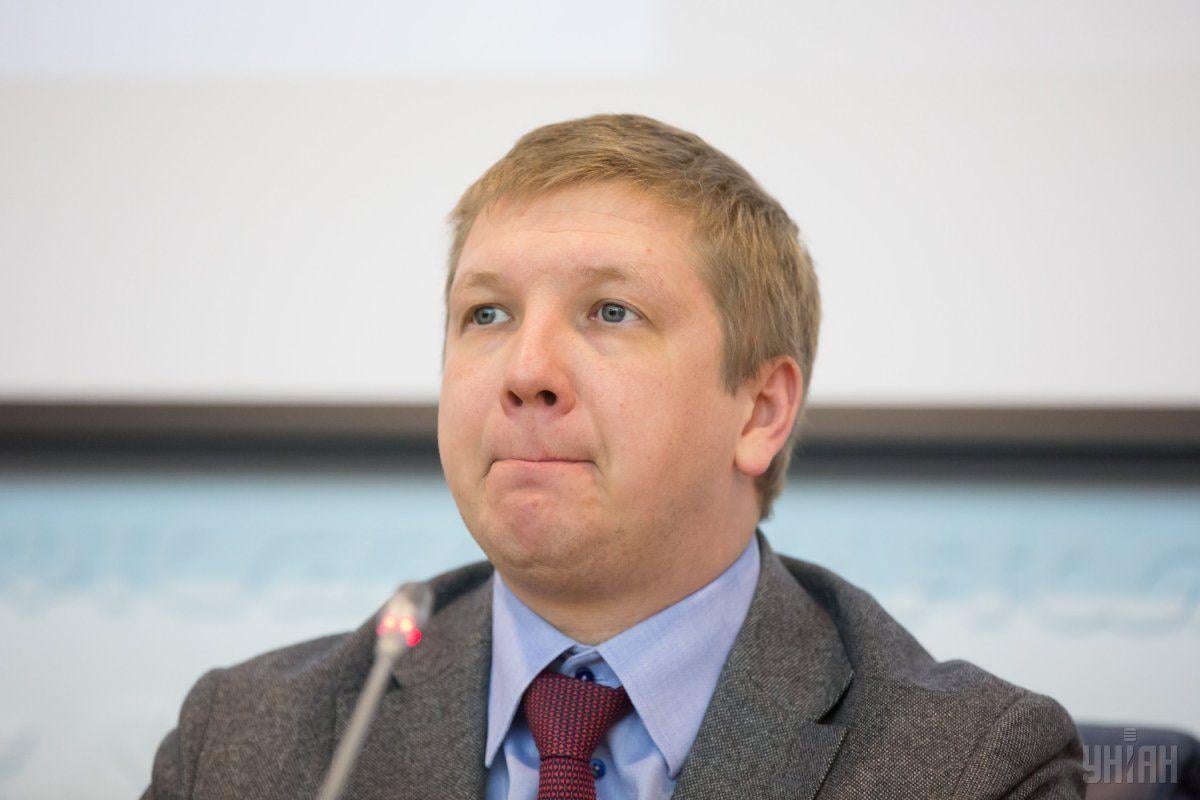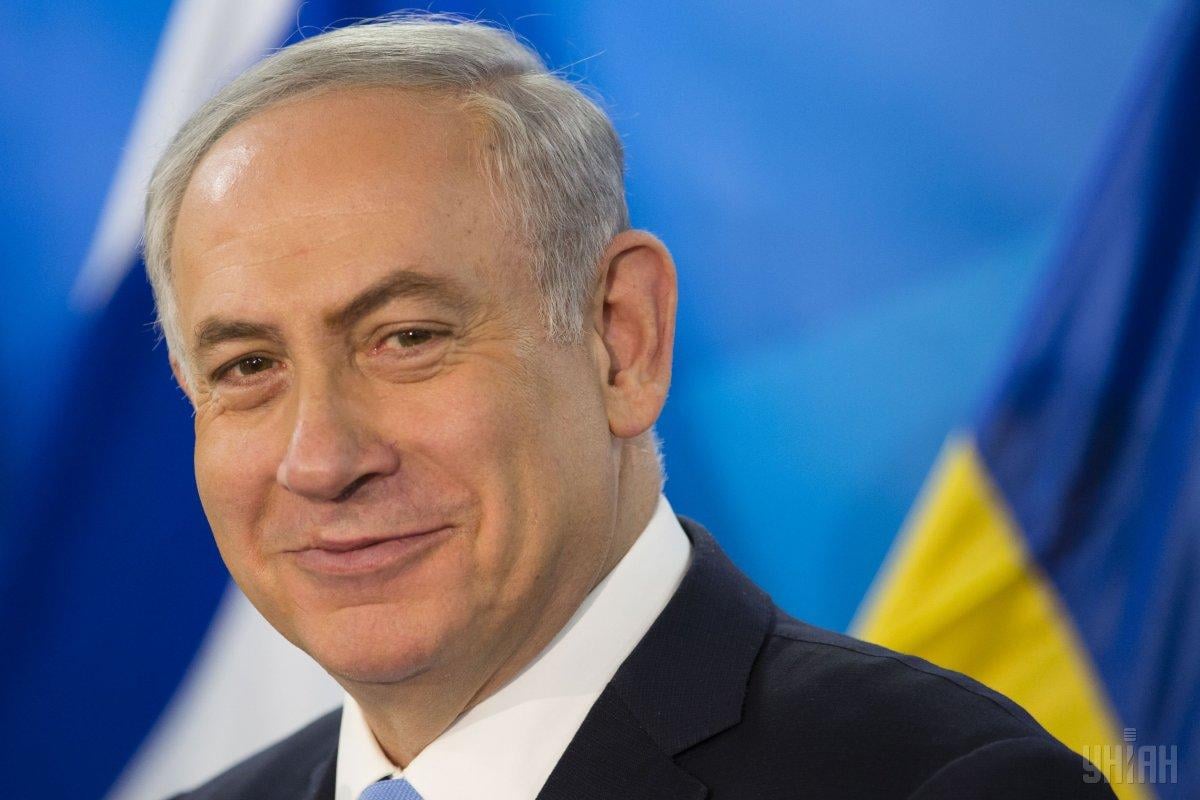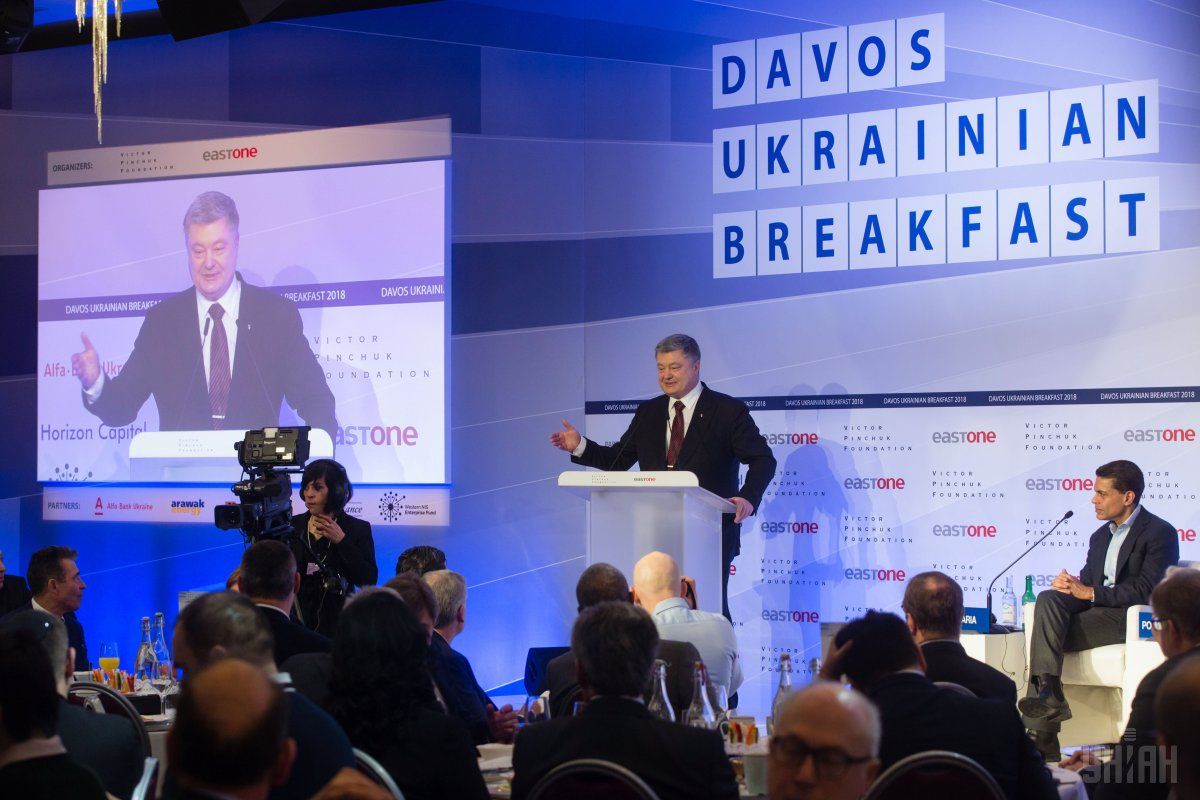
Week's balance: Gazprom's delay, FTA with Israel, and good news from Davos
Following the tripartite talks in Brussels on the transit of Russian gas via Ukraine, the parties identified their positions and set up a new meeting, while Ukraine sealed an FTA deal with Israel, and reached a number of agreements with investors at the annual economic forum in Davos – these are the key economic news of the outgoing week.
Tripartite Ukraine-EU-Russia consultations held in Brussels on the transit of Russian gas through the Ukrainian pipe after the existing contract with Gazprom expires on Jan 1, 2020, was the key economic event of the outgoing week. The Russian monopoly, fulfilling the Kremlin's will, has been leading an unannounced war with Ukraine for five years already, and now they don't hide intentions to first minimize and then completely halt Ukraine transit. Ukraine, for its part, seeks to preserve transit, but only in line with the EU rules.
Following the Brussels talks, the sides scheduled their next trilateral meeting for May 2019. The base for this meeting will be the proposal that the European Commission voiced on the conditions and volumes of Ukraine transit. No details of the offer have been released yet besides the provision that the new deal should be concluded for a period of more than ten years, while the volume of deliveries should be commercially viable, which will make it possible to attract a Western investor to the Ukrainian gas transmission system.
The Ukrainian side predicted that the January talks would not yield tangible results since Russia has in every way been trying to thwart them. In particular, Gazprom officials didn't bother to attend preliminary technical tripartite consultations ahead of the talks. “The position of the Russian Federation is actually more like another attempt to drag time,” said Naftogaz CEO Andriy Kobolyev. Apparently, Russians still harbor hope for a change in Ukraine's political elite following the upcoming elections.

Russians still refuse to comply with the award of the Stockholm Arbitration that obliged them to pay $2.6 billion to Ukraine. Moscow offers that Ukraine forgive their debt in exchange for the extension of the gas transit contract. However, in its current form, the deal does not meet the requirements of the Ukrainian and European legislation, and also blocks Ukraine's integration into the EU gas market. In particular, it hinders the completion of Naftogaz unbundling.
The European Commission remains united with Ukraine, once again confirming that the Stockholm Arbitration awards must be fulfilled in full, and gas transit via Ukraine – maintained.
Vice-president of the European Commission, Maros Sefcovic, said after the talks that he hoped that by the end of the year a contract would be signed that would ensure long-term transit through Ukraine. We, too, will hope so, because it's not just commerce that is at stake, it's also energy security of Ukraine and EU countries.
Free Trade with Israel
Another important news of the outgoing week was the signing of an agreement on a free trade zone between Ukraine and Israel. The document was signed following a bilateral meeting between President Poroshenko and Israeli Prime Minister Benjamin Netanyahu. The deal will promote the development of bilateral trade and economic cooperation between the two states. So far, the agreement concerns only marketable products, but it also spelled out the beginning of negotiations on the liberalization of trade in services.

According to the Ministry of Economic Development and Trade, the implementation of the agreement will take from three to seven years, which will enable businesses to get ready and make the most of the new free trade opportunities. Immediately after the ratification of the agreement, Israel will remove import duties for 9% of Ukraine-made agricultural products and 80% of industrial products. In turn, Ukraine will immediately remove import duties for 7% of agricultural products and 70% of industrial products made in Israel.
Without waiting for the deal to be ratified, Ukraine's defense giant Ukroboronprom has signed off a Memorandum of Cooperation with Israel's Elbit Systems Ltd, set to implement joint projects on military communications, surveillance and reconnaissance systems for the ground and air forces, air-rescue equipment, and radar stations, equipment for port protection, and armored vehicle upgrades.
The economy ministry says the FTA deal with Israel will allow increasing Ukrainian exports to this country by at least $63.5 million per year. Besides, experts predict a new wave of investment from Israel and other countries. “The agreement will green-light cooperation of Ukrainian and Israeli enterprises in many areas: high-tech, engineering, and food processing equipment,” said Natalia Mykolska, Ukraine's former trade envoy.
Good news from Davos

This week, the Ukrainian delegation led by President Petro Poroshenko visited the annual World Economic Forum in Davos, Switzerland, bringing home some good news.
In particular, following a meeting with Poroshenko, Managing Director of the International Monetary Fund, Christine Lagarde, said that the Fund was ready to continue supporting Ukraine together with international partners, traditionally noting the need for higher reform pace to ensure a more rapid economic growth.
Also, in the president's presence, an agreement was signed between the Norwegian company NBT, the French Total Eren, and the European Bank for Reconstruction and Development on the Syvash wind farm project. It provides EUR 150 million in financing for the construction of Ukraine's largest wind farm, which will also become one of the largest ones in Europe. The project's total cost is nearly EUR 400 million. Construction will begin within six to nine months.
In addition, during the forum, the founder of Horizon Capital investment fund, Olena Kosharna, announced the creation of a new fund for investment in Ukraine worth $200 million. The fund will support export-oriented Ukrainian companies operating in IT, agriculture, light industry, and food production. Investments will also be focused on such segments as e-commerce, health care, pharmaceuticals, consumer goods, and financial services.
The International Finance Corporation once again confirmed its readiness to enter the capital of the state-owned Ukrgasbank and, as part of the process, announced in Davos they would start a preliminary assessment in the coming months.
Summing up the Forum, President Poroshenko said that Ukraine is attractive for investors and has much to offer in agriculture, IT, engineering, and logistics. According to him, investors did not expect that changes in the country will occur so quickly. "I'd like to thank each of them. Thank you for your faith in Ukraine, for every dollar of investments that create jobs and budget revenues that support Ukraine," said Poroshenko.
Investor interest is supported by concrete moves. In the outgoing week, non-residents bought government bonds in hryvnias for the second time this year, this time worth almost UAH 1.8 billion – that's after the demand was resumed for Ukrainian bonds a week earlier, for the first time since March 2018.
As a result, the volume of non-residents' investments in Ukrainian government bonds has increased by UAH 3.3 billion, or by 1.5 times, since year-start.
The next week promises to be no less interesting. On Thursday, January 31, the National Bank of Ukraine will announce the key rate, which could be lowered for the first time after a nearly two-year break, as the central bank chief Yakiv Smolii announced during his parliament report. In addition, it is possible that the president will meet the expectations of investors and key creditors of Ukraine by vetoing the law on the extension of a ban on farmland sales. That's what the economy ministry this week advised that the president do.
Olha Hordienko

